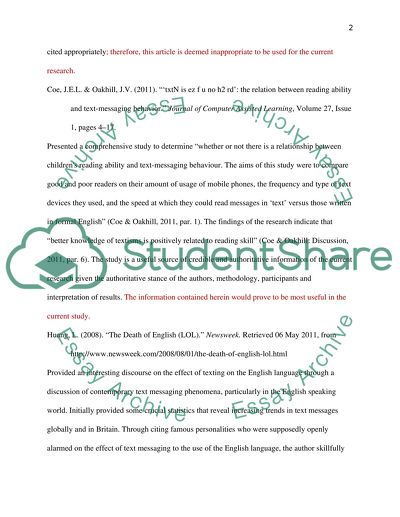Cite this document
(“Text Messaging and the Effects on Childrens Learning to Read Annotated Bibliography”, n.d.)
Retrieved de https://studentshare.org/literature/1420270-text-messaging-and-the-effects-on-childrens-learning-to-read
Retrieved de https://studentshare.org/literature/1420270-text-messaging-and-the-effects-on-childrens-learning-to-read
(Text Messaging and the Effects on Childrens Learning to Read Annotated Bibliography)
https://studentshare.org/literature/1420270-text-messaging-and-the-effects-on-childrens-learning-to-read.
https://studentshare.org/literature/1420270-text-messaging-and-the-effects-on-childrens-learning-to-read.
“Text Messaging and the Effects on Childrens Learning to Read Annotated Bibliography”, n.d. https://studentshare.org/literature/1420270-text-messaging-and-the-effects-on-childrens-learning-to-read.


